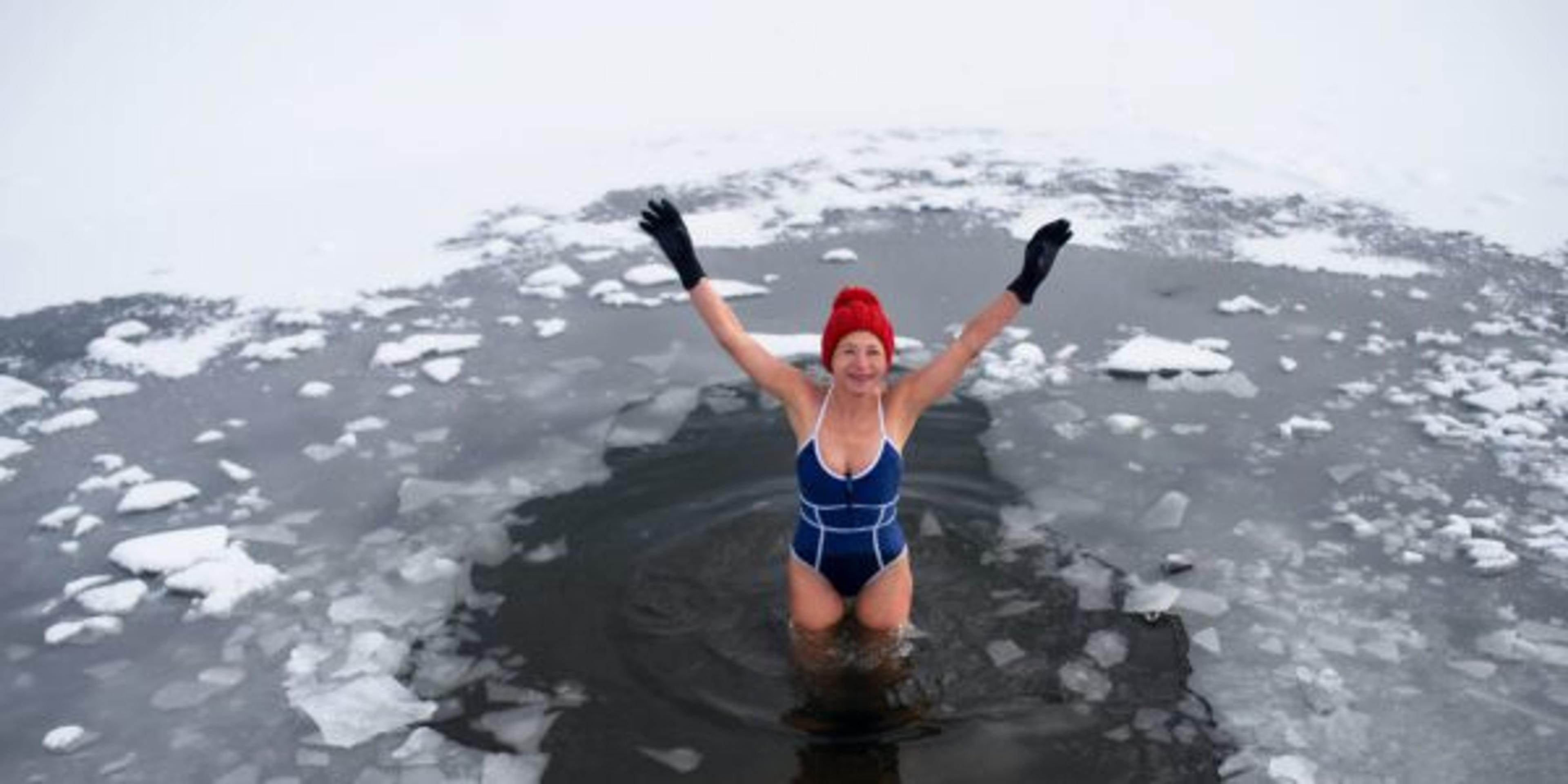What’s All the Fuss About Cold Plunges?

Gracefully Greying
| 3 min read

Scroll through TikTok or Instagram and you’re bound to see a video of someone fully immersing themselves into ice-cold water. Taking a cold plunge is the latest health and wellness trend, though it’s long been a traditional post-workout treatment for professional athletes. Those who partake in the frigid waters swear by the benefits, including a deep feeling of calm, reduced inflammation, relief from muscle soreness and improved circulation. They describe an adrenaline rush, a moment of euphoria and feeling totally reinvigorated. They claim it makes them happier, healthier and more energized.
Health reporter Lila Lazarus started taking the plunge this past winter to explore the benefits and says she’s definitely felt the dopamine hit that participants describe. Here are some of the ways she says it’s benefited her:
- Clear the mind. The shock of cold water definitely snaps you into focus, creating a heightened awareness. You immediately become present.
- Clear the skin. The temperature of theater tightens your pores and reduces any inflammation giving you the “plunger’s glow.”
- Find calm. Despite the freezing temperature, cold plunging has been shown to release endorphins and help relieve stress.
- Reduce soreness. An ice bath will soothe muscles, joints, and reduce inflammation. Top athletes have long used this treatment as part of their conditioning.
Still, the popularity of cold plunges far outweighs the amount of scientific proof to back up claims that it boosts your immune system or improves your circulation. And it certainly doesn’t suit everyone. Doctors don’t recommend it for people who are pregnant, have heart disease or asthma. They also warn about the risks of hypothermia should your body temperature drop too much.
If you do decide to try a cold plunge, there are certain safety tips to keep in mind:
- Talk to your doctor first. You always want to consult with a medical professional before trying cold plunging.
- Start with a short dip. To avoid hypothermia and other potential side effects, start with a quick dip. And don’t even consider a cold plunge if you have a heart condition.
- Don’t go alone. You definitely want to practice the buddy system. You could get weak or dizzy or feel a sudden change in blood pressure. Don’t take any chances.
Gracefully Greying puts a spotlight on those who are 55+ or are helping aging parents and family members. A weekly livestream on social media platforms highlights relevant information and meaningful discussions about growing older and staying young in heart and mind. Lila Lazarus is an award–winning news anchor and health reporter who speaks five languages and holds two master’s degrees. She has covered the news all over the world. Lila believes we all can infuse our lives with passion and excitement and leads by example. Lila is the Health and News Correspondent at Gracefully Greying.
Opinions expressed in this blog belong solely to the author and do not necessarily reflect the opinions or beliefs of Blue Cross Blue Shield of Michigan or its subsidiaries and affiliates.
Photo credit: Getty Images





